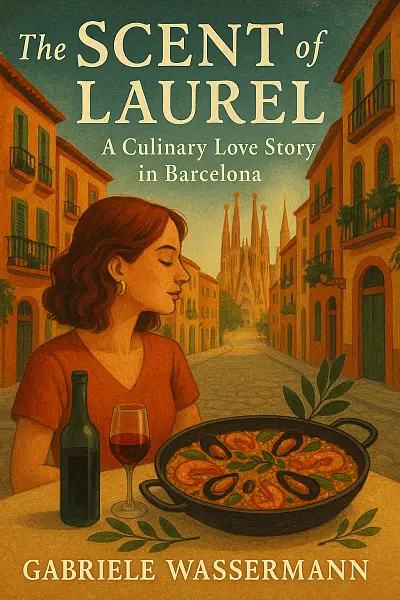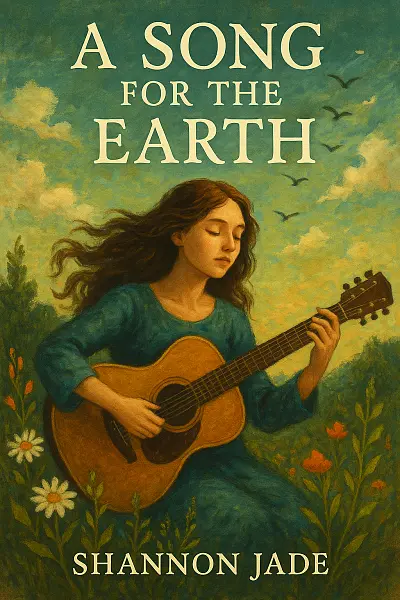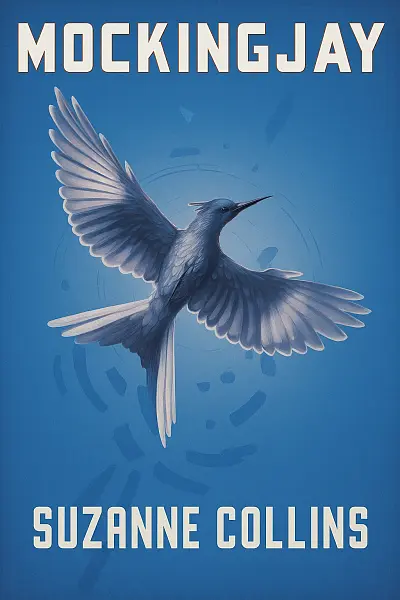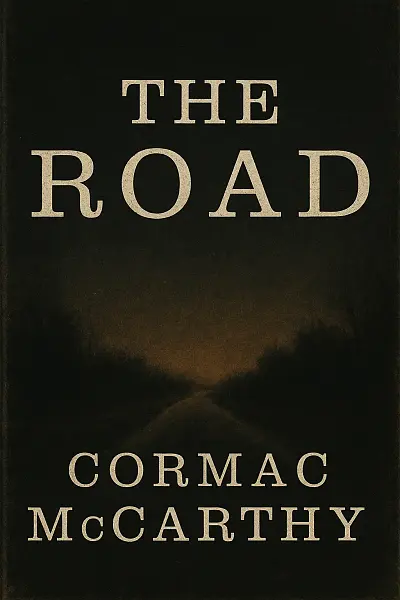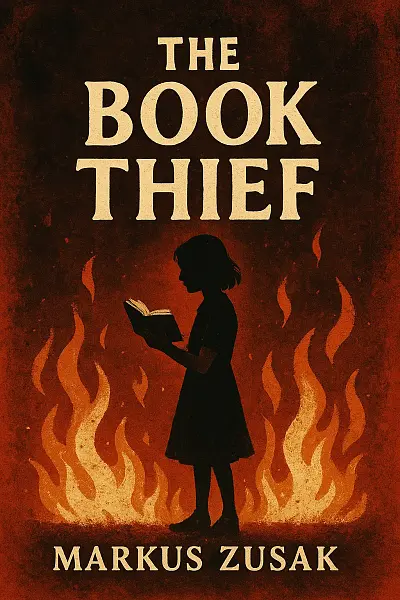
The Book Thief
by: Markus Zusak
Liesel Meminger lives in a small German town during Nazi Germany, struggling to make sense of loss and chaos. After discovering The Gravedigger’s Handbook near her brother’s grave, she becomes enchanted by the power of words. Soon, Liesel faces the terrifying reality when her foster family hides a Jewish man in their basement, putting everyone she loves at risk.
Navigating danger, Liesel finds solace—and rebellion—in stealing books and sharing their stories, clinging to language as hope in bleak times.
Narrated by Death with a haunting, poetic flair, this story pulses with tension and asks: how far will Liesel go to protect what matters most?
"Even in the shadow of death, words can be lanterns that lead us home."
Let's Break This Down
The Author's Voice
Atmosphere
Moody, melancholy, and poetic—yet with sparks of hope. Expect a setting awash in wartime grayness, weighted with the constant pulse of danger, but softened by unexpected moments of beauty. The book often feels intimate and close to the breath, as if you’re seated beside the storyteller in a candlelit room, watching a world on the edge together.
Prose Style
Inventive, lyrical, and daringly fragmented. Zusak’s sentences leap between abrupt declarations and rich, sensory detail. There’s a unique rhythm—sometimes staccato and jarring, other times lush and winding. He uses short, punchy asides that almost break the fourth wall, and his metaphors feel fresh, almost startling, like words dropped into cold water. Dialogue is sparse but loaded; the narrative voice (yes, it’s Death) brings a blend of wry detachment and unexpected tenderness.
Pacing
Measured, deliberate, unhurried. The story meanders through moments, thoughts, and observations, lingering over tiny instants and drawing them out—almost as if savoring their bittersweetness. There’s a building tension beneath the surface, but you’ll notice the pace is more about emotional resonance than plot-driven urgency. Chapters are short and often end with a single, lingering image or idea, nudging you onward.
Characterization
Raw, empathetic, and deeply human. Every character, even those who grace the page briefly, carries a unique set of wounds and quirks. Zusak paints both heroes and villains with smudges and shadows—no one is one-dimensional. Expect to fall hard for the fiercely loyal, stubborn Liesel, the quietly steadfast Hans, and the vibrant Rudy, all rendered with flaws and heartbeats you can almost touch.
Tone & Mood
Haunting, tender, and quietly humorous—never bleak but always honest. The grim realities of WWII Germany are ever-present, yet there’s an undercurrent of hope and defiance. The narrator’s dark wit adds a surprising lightness, easing the heavy subject matter with a wink and a sigh.
Overall Feel
Reading The Book Thief feels like holding something fragile and priceless; it’s a book that hurts and heals in equal measure—a slow dance between sorrow and wonder. Expect emotionally immersive storytelling, a unique voice you’ve never quite heard before, and a lingering sense of meaning long after you’ve finished the last page.
Key Moments
-
Death as the narrator—darkly witty, unexpectedly tender
-
Liesel’s first stolen book dusted in snow and grief
-
Max’s illustrated stories—fists of hope against swastikas
-
The bombing raid: words as shelter, hearts shattering
-
Molching’s basement becomes a sanctuary and a secret
-
Rudy’s lemon-haired rebellion—"stealing" a kiss from fate
-
Gorgeous fragments: colors, fractured sentences, and brutal honesty
Plot Summary
The Book Thief follows Liesel Meminger, a young German girl living in Nazi Germany. After the death of her brother and abandonment by her mother, Liesel is sent to live with the kind-hearted Hubermanns, developing a deep bond with them as she adjusts to her new life in Molching. As she steals books and learns to read with Hans Hubermann, Liesel gains comfort and power through words, even as the world around her becomes more dangerous. The arrival of Max, a Jewish man hiding from the Nazis in the Hubermanns’ basement, intertwines Liesel’s fate with larger historical events. The story’s climax is tragic: a bombing kills most of those Liesel loves, and in the aftermath, Death—the novel’s narrator—recounts how Liesel’s story both breaks and affirms the human spirit.
Character Analysis
Liesel Meminger begins as an illiterate, traumatized child but grows into a resilient and compassionate young woman, her journey shaped by her hunger for knowledge and connection. Hans Hubermann stands out as a figure of quiet heroism, guided by empathy and moral conviction, while Rosa Hubermann's rough exterior masks deep maternal tenderness. Rudy Steiner, Liesel’s loyal friend, longs for recognition and acts with courage and selflessness, embodying the innocence corrupted by war. Max Vandenburg’s relationship with Liesel is transformative for both: his presence underscores themes of suffering, hope, and the redemptive power of friendship.
Major Themes
At its core, The Book Thief is about the power of words—to both heal and harm. Liesel’s theft of books is an act of rebellion and self-definition in a world domineered by propaganda, echoing powerful messages about resistance and agency. Throughout, Zusak explores the indelible impact of war on humanity, shining a light on ordinary people caught in extraordinary times. The motifs of mortality and loss, highlighted by Death’s narration, invite readers to contemplate the value of life, memory, and compassion, especially during darkness.
Literary Techniques & Style
Markus Zusak’s style is deeply evocative—his prose is lyrical yet accessible, infusing the narrative with poetic metaphors and vivid color imagery. The unique choice of Death as a narrator lends the story an omniscient, philosophical tone while using frequent foreshadowing, non-linear storytelling, and direct addresses to the reader. Symbolism abounds—most notably, books represent both oppression and liberation, while colors punctuate the bleakness of war with beauty and meaning. Repetition, fragmented structure, and short, punchy sentences intensify emotional moments and underscore the unpredictability of life.
Historical/Cultural Context
Set in Nazi Germany during the late 1930s and early 1940s, the novel captures the daily realities of living under a totalitarian regime—pervasive fear, propaganda, and societal complicity. The impact of World War II, the Holocaust, and Hitler’s rise to power are inescapable forces shaping the characters’ lives and choices. The cultural backdrop of book burnings, rationing, and the threat of violence underscores the personal and moral challenges faced by ordinary Germans.
Critical Significance & Impact
The Book Thief has achieved widespread acclaim for its inventive narrative structure and its empathetic portrayal of wartime life from a child's perspective. Its bold use of Death as narrator and its moving blend of brutality and hope have captivated both young adult and adult readers, sparking rich discussions about memory, morality, and resilience. The novel’s enduring popularity ensures its place as a contemporary classic, widely assigned in schools and treasured across generations for its unique voice and profound insight.
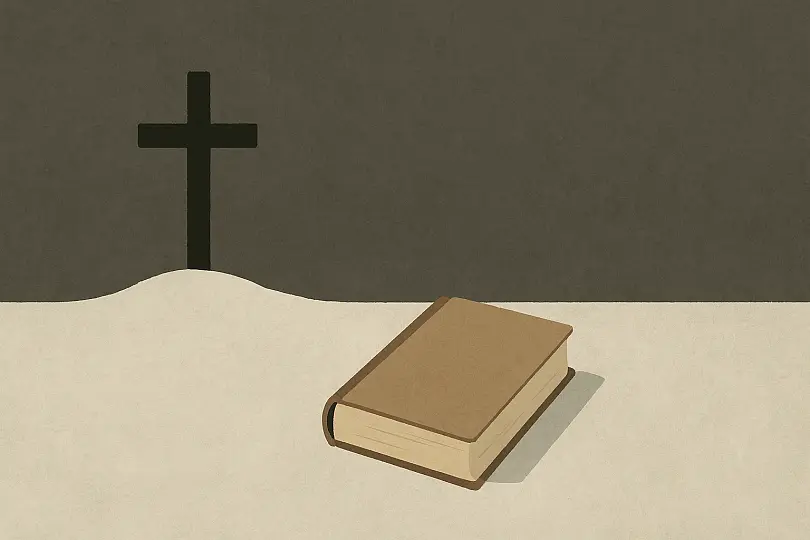
Death narrates a girl's discovery of hope and words in war-torn Germany.
What Readers Are Saying
Right for You If
If you’re into historical fiction with a unique twist—and you don’t mind occasionally sobbing over fictional characters—The Book Thief is basically calling your name. Fans of books that dig deep into the human experience, especially during World War II, will be captivated by this one. The story packs so much heart and raw emotion, and the whole “narrated by Death” thing totally sets it apart from the usual WWII stories. If you’re a sucker for beautiful writing, thoughtful themes, and unforgettable characters, this book is honestly a must-read.
On the flip side, if you mostly read for fast-paced plots or thriller-level suspense, you might find The Book Thief a bit slow or too reflective—it definitely takes its time, savoring the little moments. Also, if super quirky narration or poetic prose isn’t your thing, some sections might come off as a bit too stylized. And, if you’ve got a low tolerance for heavy topics like loss, injustice, and the darker sides of humanity, maybe save this one for another time.
Bottom line:
- History buffs, literary fiction lovers, and character-driven story fans—absolute gold.
- If you need relentless action or aren’t into poetic language, you might want to skip it (or at least go in knowing what you’re getting).
If you’re in the mood for a story that’ll make you feel everything, with a totally original voice, give it a shot—you might end up loving it way more than you expect.
What You're Getting Into
Set in World War II Germany, The Book Thief follows young Liesel Meminger as she discovers the power of words to comfort and rebel in a time of darkness.
Guided by an unusual narrator and surrounded by unforgettable characters, Liesel’s small acts of courage and quiet resistance highlight the triumphs and tragedies of ordinary people caught in extraordinary times.
Mixing heartbreak, hope, and a dash of dark humor, this novel invites you into a hauntingly beautiful story about love, loss, and the magic of stories themselves.
Characters You'll Meet
-
Liesel Meminger: The fiercely curious and resilient protagonist, Liesel is a foster child whose love for books and words helps her navigate loss and the chaos of Nazi Germany. Her journey is all about finding family, forging unexpected friendships, and growing into her own voice.
-
Hans Hubermann: Liesel’s gentle, accordion-playing foster father, Hans is a quiet moral anchor whose kindness shapes Liesel’s worldview. His subtle defiance of Nazi ideology and devotion to his family make him a beacon of hope.
-
Rosa Hubermann: Liesel’s sharp-tongued but deeply caring foster mother, Rosa hides her affection behind gruffness. Over time, her tough love and hidden tenderness reveal a complexity that grounds their household.
-
Rudy Steiner: Liesel’s spirited best friend and partner-in-crime, Rudy is fiercely loyal, endlessly optimistic, and hopelessly in love with Liesel. His youthful idealism and humor bring warmth to an otherwise dark world.
-
Max Vandenburg: A Jewish fist-fighter hidden by the Hubermanns, Max forms a powerful bond with Liesel through their shared love of words. His struggle for survival and identity is a catalyst for Liesel’s growth and understanding of resistance.
More Like This
If The Book Thief swept you away with its mix of heart-wrenching tragedy and resilient hope, you’ll probably find yourself pulled into the haunting world of All the Light We Cannot See by Anthony Doerr as well—both immerse readers in WWII’s shadows, spotlighting young protagonists who discover fleeting moments of beauty despite devastating circumstances. There’s a similar bittersweet grace threading through both stories, making them irresistible to those who appreciate novels where ordinary lives brush up against the sweep of history.
For those who cherish the powerful blend of friendship, coming-of-age, and harrowing wartime survival, Anne Frank: The Diary of a Young Girl shares significant parallels. While Anne’s firsthand account is memoir and Liesel’s is fiction, both offer unforgettable glimpses of childhood shaped by bombings, secrets, and stolen joys, told with astonishing clarity and emotional honesty.
Visually, if you were moved by the evocative storytelling and the child’s-eye perspective in the film Jojo Rabbit, you’ll notice echoes in Zusak’s novel—especially the daring juxtaposition of youthful innocence and the absurd horrors of war. The dark humor, unexpected tenderness, and a narrative voice that feels both playful and painfully aware connect the two in ways that linger long after the final page or scene.
Critic's Corner
Is the endurance of the human spirit measured best by what we create, or by what we salvage from ruin? The Book Thief gnaws at this question, painting not just the portrait of a girl in Nazi Germany but the power—and limits—of words in the darkest of times. Markus Zusak’s tale pushes us to ask: can language redeem us, or does it simply mark us as human in a world teetering on inhumanity?
What stands out instantly is Zusak’s unapologetically inventive approach. Narrated by Death itself—wry, weary, oddly compassionate—the book refuses the usual filters of historical fiction. Death skips through timelines, doles out blunt warnings, and regularly breaks the fourth wall, inviting the reader into its grim, ironic musings. Yet the prose, often poetic, can veer from delicate lyricism to jarring bluntness. Zusak’s metaphors are vivid: skies are “the color of Jews,” daytime arrives like “a fresh-tasting mouth.” Sometimes this imagery stuns; at moments, it overreaches, drawing attention to itself instead of the story. Yet, the language-within-language effect fits a novel obsessed with the power, theft, and meaning of words.
Structurally, the short, fragmented sections mirror both childhood attention and the scattershot intrusion of war. Flashforwards from Death, typographical experiments, and impactful interludes all keep the pacing taut, though there are slow patches—periods where the narrative feels weighed down by reflection or overt symbolism. Still, the emotional resonance survives these lulls because Zusak’s characters, particularly Liesel, are so vividly real, hungry for both survival and significance. Dialogue has an authenticity, with undercurrents of fear, longing, and wit.
At its center, The Book Thief is a meditation on the transformative, and sometimes destructive, power of language. Books become not just symbols of resistance but lifelines—ways to bind wounds, protest tyranny, and imagine worlds beyond bombs and borders. The novel interrogates complicity and courage, showing ordinary Germans navigating impossible choices and devastating consequences. Against the backdrop of sanctioned cruelty and public silence, Liesel’s small acts of rebellion—her thefts, her reading, her compassion—are quietly radical. The theme of mortality hovers everywhere, yet the book insists on moments of beauty: bread tossed to starving men, stolen books read aloud in a bomb shelter, hope afloat on the smallest rafts.
Culturally, Zusak locates the personal in the sweep of horror, reminding readers that history is lived most viscerally at the street-level, within families, foster homes, and friendships. The philosophical question—can words save us, and from what?—feels especially timely in an age of weaponized rhetoric and contested memory. It’s a novel that lingers, prodding at how we tell stories about suffering, and why.
Placed alongside Holocaust literature and WWII narratives, The Book Thief is both homage and departure. Unlike Elie Wiesel’s direct witness narratives, Zusak offers a metafictional lens, aligning more with works like Slaughterhouse-Five or Life Is Beautiful, yet his voice, filtered through Death’s weary eye, achieves a haunting freshness. Within Zusak’s own body of work, this is clearly his boldest experiment—less concerned with factual fidelity than emotional truth.
While some may find Death’s narration distancing, or grow weary of the book’s stylistic flourishes, The Book Thief’s emotional scope and inventive risk-taking outweigh its excesses. It matters because it reminds us that stories—stolen, shared, or salvaged—shape not just how we survive but how we remember, together and alone.
Community Thoughts
I CANNOT STOP THINKING ABOUT DEATH as the narrator. That voice, so calm and curious, crept into my dreams for weeks. No book has ever haunted me quite like this one.
I started reading just to see what the hype was about and then BAM, I'm sobbing over Hans Hubermann at 2am holding my pillow like it'll save me. This book hit my soul and I can't stop thinking about that damn accordion.
I still hear Death’s voice echoing in my head. That narrator isn’t just a character, it’s a haunting presence that made me question every page. I couldn’t stop thinking about mortality after this.
Was not ready for Death as a narrator to hit me like that. Literally had to pause and stare at the ceiling when Rudy jumped in the river. THAT LINE about words being the most powerful thing stuck with me way too long.
I can't get Hans Hubermann out of my head. The way he quietly brings color and hope to Liesel's world shattered me. Every gentle act, every roll of his accordion, I felt it echo in my chest. He haunts me still.
Leave Your Review
Local Take
Why It Matters
There’s something magical about how The Book Thief touches hearts here!
-
Parallel historical echoes: The novel’s backdrop—Nazi Germany, war, and authoritarianism—resonates with anyone familiar with our own history of conflict, occupation, or state-imposed fear. Stories of everyday bravery, hidden resistance, and suffering civilians feel intensely relatable, especially to older generations with family tales from wartime or political upheaval.
-
Cultural values: Liesel’s love of books and the power of words totally aligns with our strong tradition of storytelling and valuing literature as a force for hope and resistance. The focus on family, community, and kindness during adversity feels right at home—loyalty and resilience are big cultural themes here.
-
Plot points hitting differently: The depiction of everyday people forced to make impossible choices stirs memories of our own past—whether that’s hiding people, acts of small defiance, or keeping spirits alive with stories during dark times.
-
Literary traditions: Zusak’s lyrical, sometimes experimental prose might surprise, but it echoes our appreciation for poetic, layered storytelling. By narrating through Death, he challenges and expands the somber realism often favored here, sparking fresh conversations about memory, guilt, and who gets to tell our stories.
Food for Thought
Notable Achievement:
The Book Thief by Markus Zusak has become an international bestseller, selling over 16 million copies worldwide and earning numerous awards, including the Michael L. Printz Honor. It’s celebrated for its inventive narration by Death and its poignant portrayal of humanity during World War II, making a huge impact on both young adult and adult readers alike.
Whether you picked it up for its moving story, powerful themes, or just to see what all the buzz is about, this book has definitely left its mark on modern literature!
Like what you see? Share it with other readers




